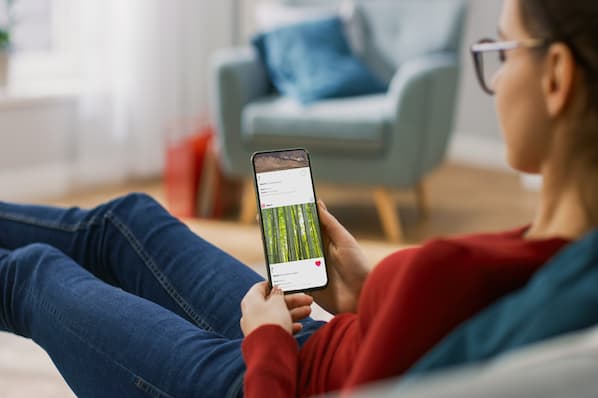 So
you've heard all about social media, blogging and inbound marketing.
You understand it and you buy into it, but you don't think it's right
for your business.
So
you've heard all about social media, blogging and inbound marketing.
You understand it and you buy into it, but you don't think it's right
for your business.
Your business is built on relationships and
reputation. The web can do a lot, but it's not going to change the
importance of relationships.
You're right.
The web
doesn't change the importance of relationships in business, it just
makes business relationships easier to develop and manage. All those
things you've been doing offline to build your relationships and
reputation now have online equivalents that are cheaper and more
scalable.
Skeptical? Here are five examples of traditional relationship-building tools and their more-scalable online equivalents:
Traditional Tool:
Company Calendar
Online Equivalent:
Twitter
Insurance
companies, dentist office and accountants love to print calendars for
their customers. They're nice gifts and they're a way of keeping the
firm's
name in front of customers all year. Of course, the firm ends up paying
thousands of dollars for the printing and the mailing, and most people
end up throwing out the calendars.
In the online world, there's a
better way to keep your name in front of people.
It's called Twitter: By creating an active Twitter account that
provides useful information about your industry, you show-up regularly
to your followers, provide useful information, and spend no money.
Traditional Tool:
Golf Outings With Prospects
Online Equivalent:
Facebook
In
the traditional world, golf is a popular way to get to know and build
trust with prospects. After all, if you see someone struggle through 18
holes, you see different sides of that person, which helps you understand the kind of
business partner they'll be.
Facebook
is a far cheaper and less time-consuming way of getting to know a potential business partners. Just like on the
golf course, you get a sense of what's important to them and how they
spend their time outside of the office.
Traditional Tool:
Chamber of Commerce Membership
Online Equivalent:
Same, but you get more out of it.
Online
tools don't replace real-world participation in organizations like your
local chamber of commerce, but they do allow you to get more out of
them. Instead of going to a chamber event and spending time with the
two or three people you know well, you can go to the chamber event and
have meaningful interactions with the dozens of people you've connected
with and built loose relationships with over Twitter, LinkedIn and
Facebook
. These relationships give your business more visibility in the community.
Traditional:
Word-of-Mouth Hiring Recommendations
Online Equivalent:
Same, except the word-of-mouth happens on Twitter,
Facebook
and LinkedIn.
In the traditional world, you might put ads in the newspaper when you
want to hire somebody, but you know that your best
recommendations will come from friends-of-friends. That's
also true online -- only that online there's more scale. In the
offline world you might tell five of your friends about a job. In the
online world, a tweet about a job opening might be seen by 50 people
who know you, and know what kind of person would fit your job opening.
Traditional Tool:
Monthly Newsletter
Online Equivalent:
Blog
Many
small businesses send out monthly newsletters to keep their customers
and potential customers up-to-date. The printed newsletter helps
maintain relationships, but it's a hassle to pull together, and costs hundreds
of dollars. You can do the same sort of relationship
maintenance with a blog. A blog is cheaper, and it's not as hard to
produce. Plus, with a blog, your articles get
indexed by Google and show up in search engines, thus building new
relationships.
Traditional Tool:
Client Birthday Cards
Online Equivalent:
Same, except with tools like
Facebook
they're far easier to manage.
Birthday cards are a great way to
nurture
relationships -- only you need to be very organized to pull them off.
Not only do you need to know when you friends' birthdays are, but you
have to remember the birthdays and actually write notes.
Facebook
solves this problem. If you simply subscribe to
Facebook's
bithday
email, you'll get alerts of all the birthdays of the people you're
connected to a few days before they happen. That means you can use
the time you would have spent keeping track of birthdays to send more
and more thoughtful notes. In other words,
you can have more personal interactions with a larger group of people.
There
are lots more examples. What do you think should be added to this list. How do you
manage online relationships in businesses traditionally built on offline relationships.
Webinar: Twitter for Marketing and PR
|
Download the free webinar for tips and tricks to drive inbound marketing using Twitter. |


![[UPDATE] How to Make a Facebook Business Page That Keeps People Engaged](https://53.fs1.hubspotusercontent-na1.net/hubfs/53/how-to-make-a-facebook-business-page-compressor.jpg)




![The State of Social Media in 2024: How You Can Drive Communities, Sales & Virality [Data from 1,500+ Social Media Marketers]](https://www.hubspot.com/hubfs/state%20of%20social%20media%20in%202023.png)


